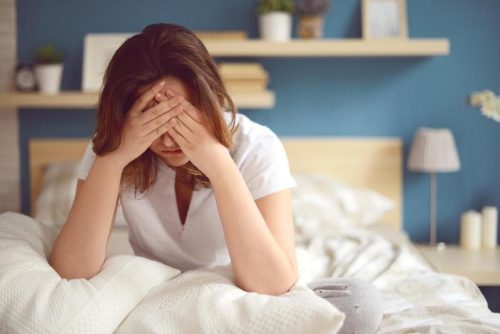Back in May 2016 we published an article entitled How is Deafness Affecting Your Mental Health? The heartfelt responses to the information showed us that mental health in the Deaf Community is a subject that needs regular attention. It has to be okay to say, ‘I am not okay!’
What are mental health issues?
 We can all have a bad day, but someone who struggles with mental health problems may frequently feel depressed, anxious and ‘down’ to an extent that their everyday life is affected. They may describe themselves as having ‘burnout’ or feeling ‘overwhelmed’. Rarer problems such as schizophrenia and bipolar disorder are also described as mental health issues. Just as looking after our physical health leads a happier life, protecting our mental health is a priority if we are to enjoy our lives and have positive relationships.
We can all have a bad day, but someone who struggles with mental health problems may frequently feel depressed, anxious and ‘down’ to an extent that their everyday life is affected. They may describe themselves as having ‘burnout’ or feeling ‘overwhelmed’. Rarer problems such as schizophrenia and bipolar disorder are also described as mental health issues. Just as looking after our physical health leads a happier life, protecting our mental health is a priority if we are to enjoy our lives and have positive relationships.
Getting help – don’t give up!
It is certainly not easy to access professional help if you suffer with a mental health condition. According to British Deaf News, D/deaf people are twice as likely to suffer from depression as hearing people, and sadly the Deaf health charity SignHealth reports that D/deaf people experience poorer overall health than hearing people, largely due to poorer access to services and information.
Since 2016, the NHS has a duty to provide accessible information to patients, service users, parents and carers; however, a typical experience for a D/deaf person struggling with mental health issues is that he or she reluctantly visits a doctor who cannot sign and is too stretched to take the time (or spend the money) to find someone who can. A patient may resort to trying to write the problem down on paper, but really, who can effectively communicate a mental health problem in that way? If you are D/deaf, what can you do to access help for your mental health concerns?

Worried mid adult man getting bad news at doctor visit.
- Do not be embarrassed about asking for help. Every year, 1 in 4 people suffer with mental health problems. You are not alone. It is so important that you do not suffer in silence. Our article 8 Tips to Manage Assertiveness and Hearing Loss might help you to overcome some of your fears.
- Your healthcare provider may be inexperienced at communicating with a D/deaf person but you have a legal right to request a lip speaker or sign language interpreter at any appointment you have, and the healthcare provider has the responsibility to book and cover the cost.
- Look up online resources. Here are a few that we like:
- The British Society for Mental Health and Deafness (BSMHD) is working hard to promote the positive mental health of deaf people.
- Mind is a fantastic charity with a really useful website, including a glossary of mental health terms which you may find useful when trying to describe how you feel.
- Time to Change has some great ideas about breaking down the stigmas around mental health issues, including some tips on how to talk to your friends and family about how you are feeling.
Look after yourself
Anxiety, depression and low moods do not disappear overnight, but there are some practical ways that we can help ourselves.
- Eat well. In her article entitled Feed Your Brain for a Healthy Mind, Deaf nutritionist Jeanann explains how important good nutrition is for positive mental health. Making good food and drink choices on a daily basis will go a long way to improving your mood and overall health.
- Enjoy time with friends. Feeling excluded because of hearing loss or deafness can make us feel so isolated and lonely, which if left unchecked can lead to more serious emotional problems. Try to have upbuilding and fun times with friends who really make you feel good about yourself. Talk to your GP if you feel like accessing local support groups.
- Be kind to yourself. Low self-esteem and being too tough on yourself can be the start of mental health problems. Take each day at a time and remember that tomorrow is a fresh start.
Please let us know if we have missed out any resources that you have found to be useful.
Further reading: Download the Sick of It report from SignHealth and please take a look at our Resources section for more information on the types of services available to deaf people to help improve quality of life.
AUTHOR: Jo MCarthy – freelance writer and small business owner

My name is Jennifer Wills and I am the Program Coordinator with Flagler health + Care Connect+ in the BRAVE program. This year, we are looking to make a big impact on our young people by way of the BRAVE Summit. This will be a free, LIVE event, accessible to all high school students, in NE Florida. We are excited to provide free food, entertainment, music, and speakers all centered around the singular message of breaking down stigma and talking about the issues affecting teens the most. We need all the support we can get to be able to arm teens with all the information, tools, and resources that we have to offer.
We would love to share your resources for the youth at this event. Please email me for more information and thank you for all that YOU are doing as well to tackle stigma and normalize conversations around mental wellness!! jennifer.wills@flaglerhealth.org